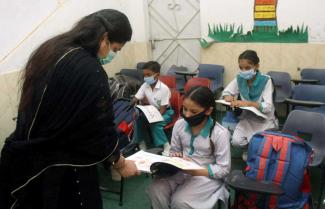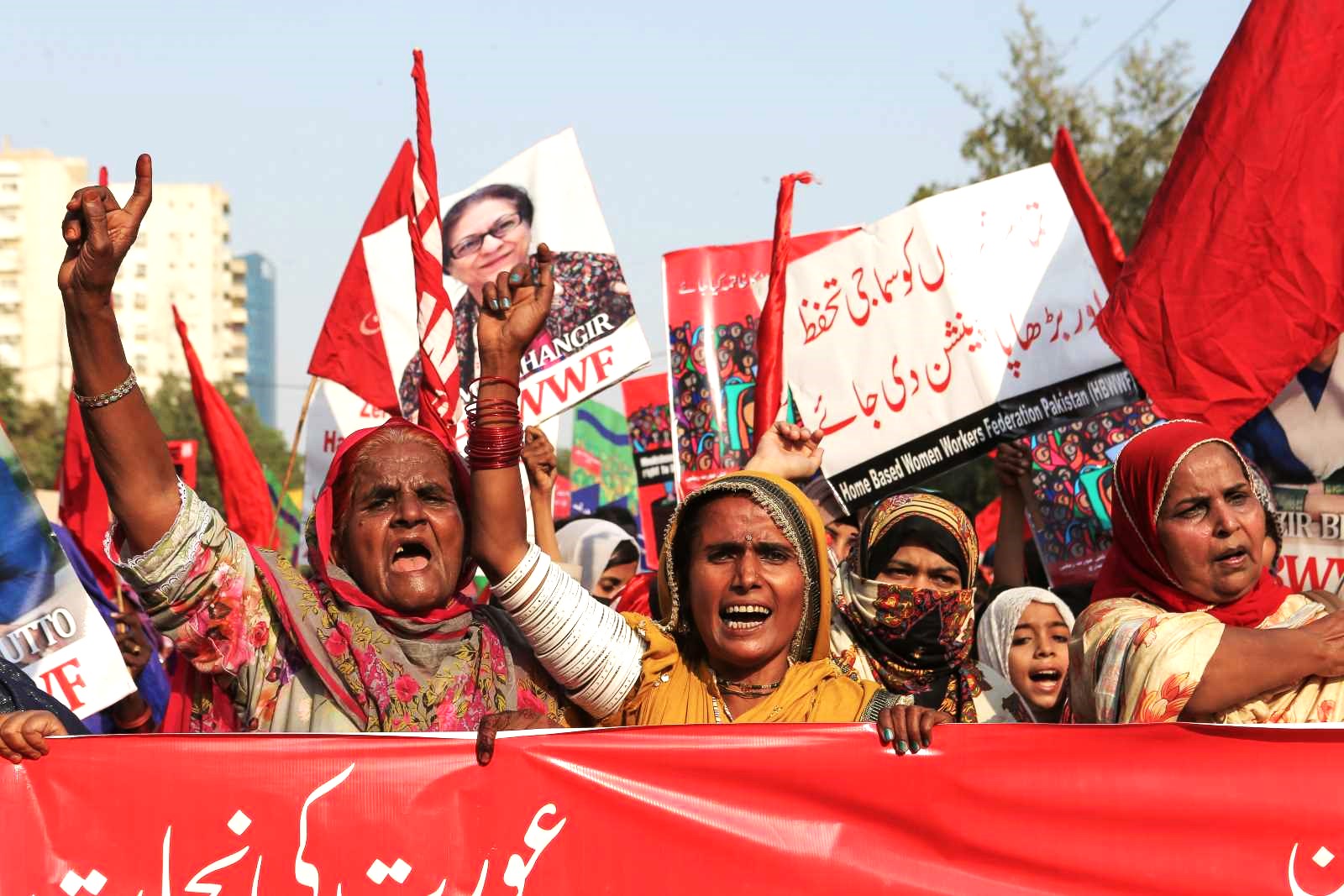Girls
Pakistan is among the worst countries for girls

The global childhood report that Save the Children, the international non-governmental organisation, published this year tells a sad story. Pakistan ranks 147th of 186 countries in its End of Childhood Index, which takes account of “childhood enders” such as death, chronic malnutrition, not going to school, working, early marriage and motherhood. The report does not explore gender disparities in depth, but shows that masses of young Pakistanis are denied a real childhood.
Girls suffer more, however, as UNICEF’s latest State of the World’s Children report illustrates. It acknowledges that 18 % of boys in Pakistan do not go to primary school, but the comparative figure for girls is 29 %. While 64 % of boys complete primary school, only 55 % of girls do so. To some extent, the families are to blame. According to government data, one quarter of female primary-school dropouts stopped attending classes because that was what their parents wanted.
The gaps widen for teenagers, according to UNICEF. Only seven percent of adolescent boys in Pakistan are not in education, employment or training. By contrast, 43 % of adolescent girls lack any such opportunity.
In 2017, the UN agency published a situational analysis of children in Pakistan (UNICEF 2017). It shows that poor rural girls typically get less than a full year of schooling, whereas boys from affluent urban families on average get at least 10 years. Moreover, fewer girls than boys receive treatment for ailments such as diarrhoea or acute respiratory infections. Similarly, boys are more likely than girls to be fully vaccinated.
In view of such data, it is no surprise that Pakistan is among the worst countries in terms of gender justice. In the 2021 World Economic Forum’s recent Global Gender Gap Report for instance, Pakistan ranks 153rd out of 156 countries. The private-sector lobby group compiled its index relying on national data for four key dimensions:
- economic participation and opportunity,
- educational attainment,
- health and life expectancy, and
- political empowerment.
Pakistan performs poorly in all four categories – and gender injustice sets in at an early age. In 2016, Pakistan last submitted a periodic report to the UN Committee on the Rights of Child. The Committee concluded that Pakistan must do more to alleviate gender disparities and ensure equal rights for all children. It bemoaned:
- serious discrimination against girls,
- persistent gender disparity in infant-mortality and school-enrolment rates,
- the persistence of early marriages,
- exchange of girls for debt settlement,
- domestic violence targeting girls and
- a growing number of infanticides targeting girls.
The Committee expressed also concern because of “the low level of awareness of sexual and reproductive rights among young persons and the reported lack of access to sexual and reproductive health-care services for girls” (in regard to how important sex education is, please note my contribution in the focus section of D+C/E+Z e-Paper 2020/04).
Harmful traditions
Pakistani society does not value women the way it does men. Accordingly, parents tend to have a strong preference for sons. Due to traditions and customs, they often see daughters as an economic burden, whereas they hope their sons will take care of them in old age. They will have to invest in a dowery to get their daughters married – and later in life, these girls will look after their in-laws.
Survey results thus tell us that, among mothers of three children, 60 % of those who have three sons do not want a fourth child. The comparative figure for mothers of three daughters is a mere 21 %. Though abortion is illegal in Pakistan, it is estimated that about 2.25 million pregnancies end that way every year – and sex selection is an important motive. In 2019, moreover, the non-governmental Edhi Foundation found nearly 400 bodies of newborn babies dumped in open space and roadsides in Karachi. The main reason was female infanticide.
The plain truth is that poor families struggle to take proper care of their children – and daughters suffer in particular. Economic hardship contributes to the high incidence of child marriage. Indeed, more than one fifth (21 %) of Pakistani girls are married before they turn 18, and one in ten gives birth before that age. In rural areas, teenage marriage is considered normal.
Male dominance is deeply entrenched in Pakistanis’ mindset. According to government data, more than half of adolescent girls (52.7 %) believe that husbands are allowed to beat their wives. The same survey revealed that teenage wives were especially vulnerable to abuse, with one-third (33 %) experiencing physical or sexual violence. In its 2019 World Report, Human Rights Watch similarly emphasised the horrors of gender-based violence in Pakistan, including rape, so-called “honour” killings, acid attacks, domestic violence and forced marriage.
Pakistan is still a poor country, and state capacities are not strong. In people’s lives, traditional norms typically matter more than formal legislation. Human rights are generally not protected well. Girls are especially at risk. Government agencies and civil-society organisations must do more to ensure they get access to education and health services. Girls need to be protected from violence, neglect and exploitation. Girls’ opportunities must improve so they grow up to be fully empowered citizens. Gender discrimination is unacceptable. There has been some progress in recent years. Gender disparities were even greater in the past. However, the rate of progress is much too slow. Millions of young girls continue to be deprived of fundamental human rights.
The mindset must change. For society to prosper, women must be empowered to take their fate into their own hands and male dominance must be overcome. Our nation cannot afford to leave the human capacities of half of the population undeveloped. If it does, we will not only remain one of the worst countries in terms of gender disparities, but in terms of economic opportunities too.
Link
UNICEF, 2017: Situation Analysis of Children in Pakistan.
https://www.unicef.org/pakistan/media/596/file/Situation%20Analysis%20of%20Children%20in%20Pakistan.pdf
Mahwish Gul is a Nairobi-based Pakistani development consultant.
mahwish.gul@gmail.com
Correction, Friday 24 September, 10:40 Frankfurt time: Due to an editorial mistake, the previous version of this manuscript falsely stated that 60 % of Pakistani mothers with three sons want another child. The truth is that they do NOT want a fourth child.










